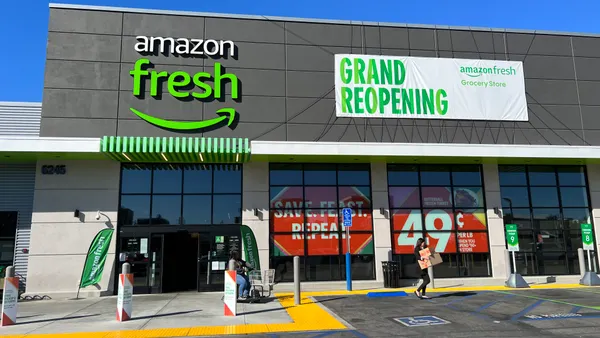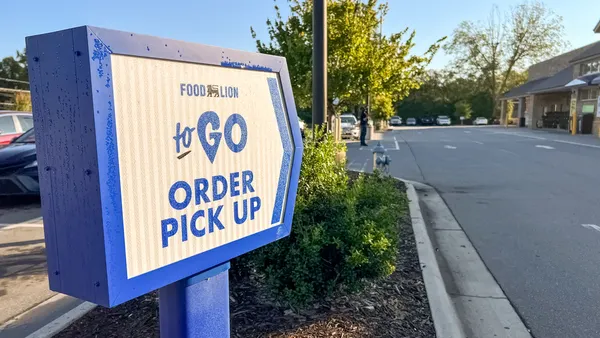Dive Brief:
- Walmart will expand its Delivery Unlimited grocery delivery membership to 1,400 more stores in 200 markets this fall, according to a company press release. Membership pricing will remain at $98 for a yearly subscription or $12.95 per month.
- Earlier this year, Walmart began piloting Delivery Unlimited in Houston, Salt Lake City, Miami and Tampa. The company said it has decided to expand the program based on positive customer response.
- The delivery membership will be available to more than half the country at more than 1,600 stores by year’s end, Walmart said. The membership includes a free 15-day trial. Shoppers also have the option to pay a fee-per-delivery without a membership.
Dive Insight:
Walmart didn't offer specifics on how many customers signed up for its Delivery Unlimited program during the four-market pilot, which was first reported in June, but the response must have been strong to drive expansion so quickly. With the resources, physical presence and labor Walmart has, scaling rapidly is a key advantage it holds.
While Walmart has led the charge in grocery pickup, boosting grocery delivery is a major step towards keeping pace with Amazon and remaining competitive with traditional grocers like Albertsons, which has also introduced its own delivery plan.
Senior vice president of digital operations Tom Ward said in a statement that Delivery Unlimited is the next step in Walmart's online grocery journey. "By pairing our size and scale and these services we're making Walmart the easiest place to shop. Combine that with the value we can provide, our customers can't lose," Ward said.
Delivery plans and memberships may soon become the status quo in grocery delivery. In addition to Prime, Delivery Unlimited and Albertsons' yet-to-be-named plan, memberships for unlimited grocery delivery have been a foundation for online grocers Instacart and Shipt. While some shoppers may initially balk at paying the price, these memberships can solidify shopper loyalty, encourage repeat purchases and drive bigger baskets.
Recent research from data company Second Measure shows Walmart has 62% more online grocery customers than Instacart, its closest rival. Given the company's e-commerce loyalty, expansive footprint and promotional heft, adoption of grocery delivery may occur faster than it would among other shoppers at other grocery stores.
"While consumer demand for this type of service remains a bit murky in our view, especially from a cost perspective for both the retailers and consumers, Walmart's massive 5,300-plus store network, and around $270 billion in grocery-equivalent U.S. revenue, continues to make it the most formidable competitor in the segment, and this expanding initiative ups the ante immensely," Moody's analyst Charlie O'Shea wrote in a note emailed to Grocery Dive.
It will be important to track how shoppers respond over time, especially as more grocers introduce their own subscription plans. Will customers become loyal to a single brand, or will they be willing to fork over cash to access to multiple grocery delivery services? Walmart and its rivals will, no doubt, do whatever they can to incentivize shoppers and convince them that their membership the only one worth having.













